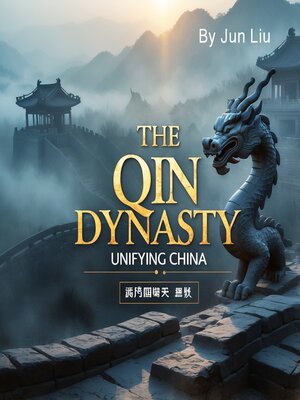
Sign up to save your library
With an OverDrive account, you can save your favorite libraries for at-a-glance information about availability. Find out more about OverDrive accounts.
Find this title in Libby, the library reading app by OverDrive.



Search for a digital library with this title
Title found at these libraries:
| Library Name | Distance |
|---|---|
| Loading... |
The Qin state emerged as one of the most formidable powers during the Warring States Period, a time of intense conflict and political fragmentation in ancient China. Situated in the western frontier, Qin was once considered a relatively backward state compared to its eastern rivals. However, through strategic reforms, military innovations, and a firm commitment to Legalist principles, Qin transformed itself into the dominant force that would eventually unify China.
One of the key factors in Qin's rise was the implementation of Legalist policies under the statesman Shang Yang. In the fourth century BCE, Shang Yang introduced a series of reforms that fundamentally reshaped Qin society. These policies emphasized strict laws, centralized authority, and merit-based advancements. Land ownership was restructured to allow farmers more direct control over their land, encouraging agricultural productivity and economic growth. At the same time, a rigid legal code was enforced, ensuring discipline among the population while diminishing the power of aristocratic families. By weakening the influence of hereditary nobles and promoting individuals based on their abilities, Shang Yang's reforms created a more efficient and loyal administrative system that strengthened Qin's central government.
The military advancements of Qin also played a crucial role in its ascendance. Unlike other states that relied heavily on noble warriors, Qin adopted a professional army system that allowed for greater discipline and efficiency. The state implemented mass conscription, ensuring a steady supply of soldiers trained under strict military codes. Advanced weaponry, including iron swords and crossbows, gave Qin troops a significant advantage on the battlefield. Additionally, the construction of an extensive road network allowed for rapid troop movements, enabling Qin forces to respond quickly to threats and expand their territorial control.







